Building Class Culture with Social Skills Goals Transcript
Speaker 1: All right. So, we are going to ask your team which aspect of respect you will be working on. In our classroom we use social skill goals as a way to give students voice as a classroom management technique, and a way to build our class culture. Today we focused on being respectful.
So, eyes and ears over here for your respect chart. For every unit we have a new social skill. A lot of times we'll let the students help us choose which skill that they think we need to focus on. We're gonna talk to them about what do you know about it? Where have you seen it? What does it look like? What definitions have you been told? And we just write down what they share with us. Then as we get into the unit and into the lessons each day, the students will choose one specific aspect of being respectful that they will work on, and so we keep adding to it.
Nice and loud, what aspect of respect is your team gonna focus on today?
Speaker 2: Communicating between us.
Speaker 1: Communicating in your team?
Speaker 2: Yeah.
Speaker 1: During the class period today, we keep track of what that is, write it down, and at the end of the class period we come back to it and ask students to self assess. Purple team?
Speaker 3: We're going to work on helping each other out.
Speaker 1: How will that look like or sound like?
We ask them what does the skill look like, and what does it sound like? And that's a little more specific to the classroom.
Speaker 4: Sometimes we just look at each other like, "Do you need it?" Instead of just verbally saying, "Oh, do you want us to help you?"
Speaker 1: All right, so you're going to verbally ask if they need help?
Speaker 4: Yeah.
Speaker 1: Keep in mind today as we're working, how many points do you think you would deserve? How well are you doing that? Kind of a self-reflection piece. We're doing that the whole lesson. This is all done in their teams, so they're in heterogeneous teams, where they get a chance to share ideas, practice with each other, talk about it together.
You just had a lot of team talk, so reflect for a minute how well did your team do on your aspect of respect that you were focused on? Talk with your team for a couple of minutes, and we'll come back and get how many points you deserve out of 10.
Number of points?
Speaker 5: We deserve 10.
Speaker 6: They didn't have ... just say eight.
Speaker 1: They shared out of 10 points how many points they thought they earned, and why they earned those points.
Speaker 7: Eight points, because we [inaudible 00:02:20] with questions.
Speaker 8: Having materials.
Speaker 1: You should have talked with your team, but make sure you share with us how many points, and why you think that? There are times that teams will award themselves more points than they likely deserve, and we do reserve that right to say, "I disagree with you because..." and then we'll usually come to a compromise somewhere in the middle.
Purple team, you were working on verbally asking if others needed help. How did that go today?
Speaker 10: Okay, so I think we deserve a 10 because when Jose needed help with the important facts, instead of us waiting on him to say, "I need help," or just waiting on him to freeze up, we actually helped him instead of leaving him there to think, "Oh, what do I say?"
Speaker 1: Yeah, you jumped in right away, and you noticed that he might be struggling. I would agree with you. 10 points. So now that you are doing really well with communicating, or helping each other, maybe tomorrow you're going to work on using a polite tone, or positive compliments.
The foundation of this strategy is really their voice in it, and them creating it, instead of us as a teacher just saying, "You need to sit down. You need to have your head up. You need to look at us." It comes from them.


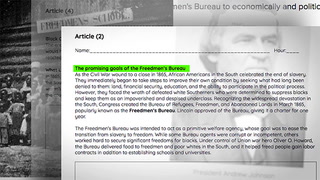
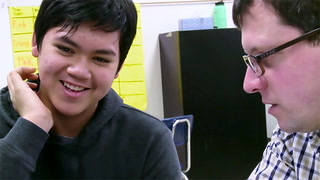
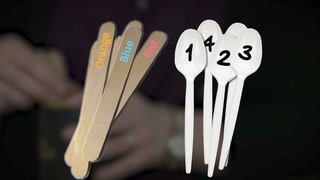
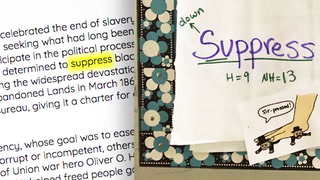
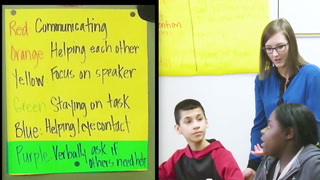
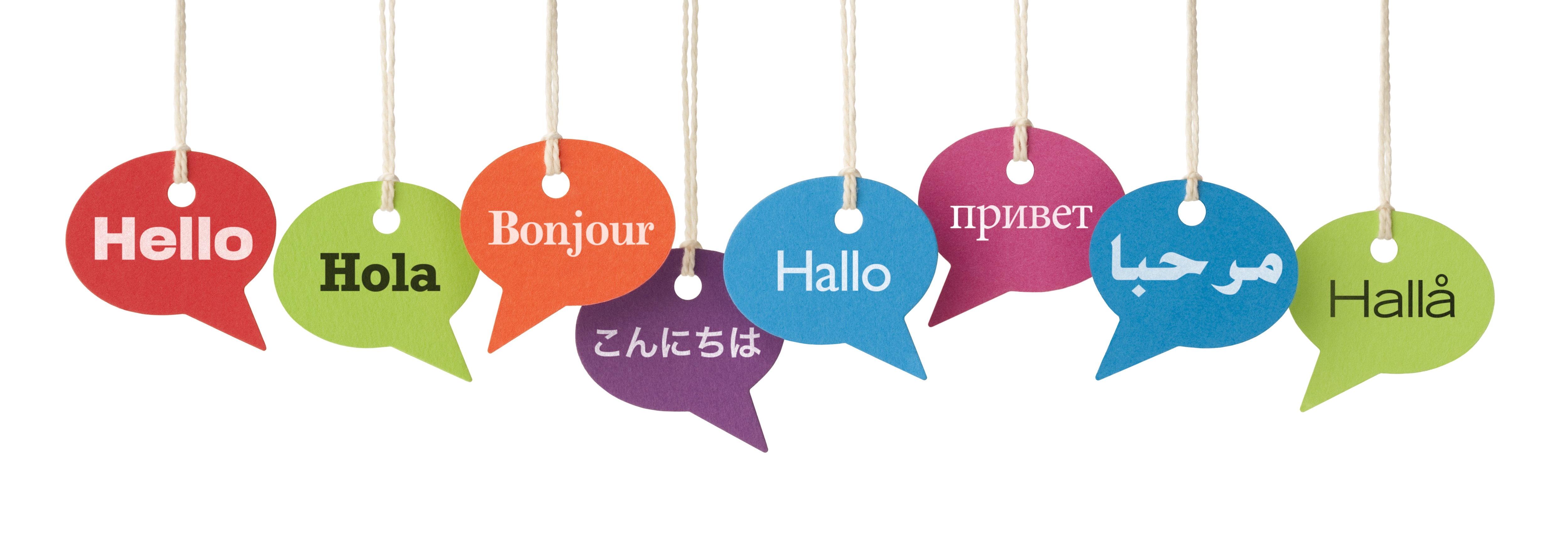








35 Comments
Paige Klumpe Sep 25, 2022 2:33pm
I think that this is a great way to teach social-emotional learning. I also think that this helps teach respect, and keeps them in check. With reflecting at the end of the day, it makes them want to do well at the task all day! At this age, students have a drive to do well in things and I think this video shows that.
Makenzie Vargas Sep 15, 2022 9:36am
The video is a wonderful use of SEL learning! It focused a lot on social skills and how to improve on them. It gave the students a chance to infer through past experiences and determine what needs to be worked on for the focus. The teachers also gave the students a chance to reflect on how well they focused on the improved social skill and whether they achieved in executing it in the assignment. The focus of the homework was to see if while communicating during teamwork lessons, students can infer through social cues or words to determine and react to what a fellow student needs help with.
~Makenzie Vargas Toledo (EDU250)
Jeremiah Chase Sep 15, 2022 12:01am
Again, I really like that this touched on respect. I think it is a great idea for any age to have their group set a goal for the day and then self-assess how they did with their "portion" of respect. Not only does this help students evaluate themselves on outward actions but I'm sure gets them thinking about their inward emotions as well.
Chloe Hibler Sep 14, 2022 10:18pm
I think this is a great way to teach students social skills. They have to learn and improve based on their own envolvement in the activities and they are trying to better others. I also like how the lesson is not based on them learning skills but how the students use it througout the day to better others and help themselves.
Dionne Zurich Jul 10, 2022 11:27pm
Awww! This was the middle school I went to from 1980-1983 (7th, 8th, 9th)! Love this strategy.